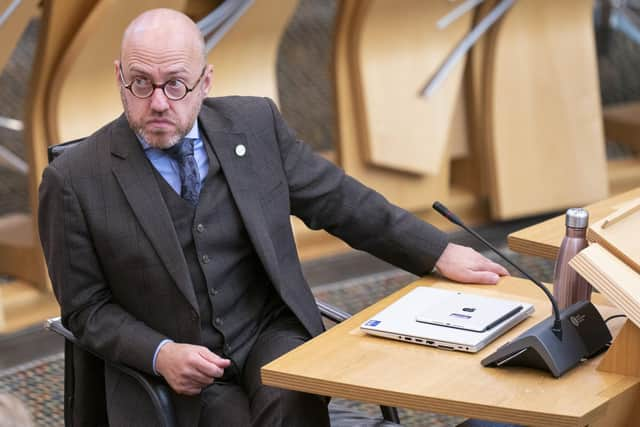Heat in Buildings Bill: All Scotland properties to start move from oil and gas boilers to green systems like heat pumps in 2028
All homes and properties in Scotland will be required to begin replacing climate-polluting heating systems with green alternatives from 2028, with a cut-off date of the 2045 net-zero deadline, under proposals for the Scottish Government’s new Heat in Buildings Bill.
The date will apply to both off-grid buildings and those on the gas network, with some exemptions for premises that cannot be made compliant.
Advertisement
Hide AdAdvertisement
Hide AdOther measures outlined in the plans, which are now open for public consultation, include a requirement for those buying a home or other property before 2045 to replace polluting heating systems within a specified time period following the purchase.
Minimum standards for energy-efficiency would also be set to help make buildings warmer and cheaper to heat. Private rented homes would need to meet regulations no later than 2028, with owner-occupied premises required to follow suit five years afterwards, by the end of 2033.
It is hoped the new legislation will be introduced in 2025.
Announcing the proposals, zero carbon buildings minister and Scottish Greens co-leader Patrick Harvie said the proposed regulations would not only help cut Scotland’s contribution to climate change, but also “liberate households and businesses from volatile fossil fuel prices” which have seen energy bills rocket.
“Heat from our homes and buildings represents around 20 per cent of Scotland’s carbon emissions,” he said. “So there is no route to meeting our legal duty to be a net zero country by 2045 without making the heat transition.”


The proposals follow the introduction earlier this year of a new-build heat standard that means any properties constructed under a new warrant from April 2024 must have an eco-friendly heating system.
Mr Harvie said the Bill would come with a “generous funding package” of grants and loans, available to households who are seeking to switch to eco-friendly heating systems.
He said: “There will be no ‘one-size-fits-all’ approach to what we’re proposing – we recognise that different types of buildings in different areas need different solutions – but today we are giving certainty to households to plan and clarity for businesses to invest, with a pathway which recognises the cost pressures that so many of us are currently facing.”
He said the new rules would see Scotland “on by far the most ambitious path within the UK”, with deployment of green heating systems “at a scale and pace very much faster than at present”.
Advertisement
Hide AdAdvertisement
Hide AdMr Harvie also hit out at the UK Government’s recent "climate U-turns", saying its relaxation of heating and energy-efficiency targets had a "profound impact on Scotland", creating uncertainty and jeopardising progress on cutting emissions. He also called for Westminster to act on pledges for reform of the electricity market, to decouple it from fluctuating gas prices.
“The UK Government has the opportunity to match our ambition by using its reserved powers to take urgent action to reduce the price gap between gas and electricity, and by regulating energy companies to play their full part in this transition,” he said.
The consultation also includes initiatives to encourage the development of heat networks, which can provide effective and low-carbon solutions for the likes of social housing developments, hospital complexes and college campuses and even whole neighbourhoods.
Comments
Want to join the conversation? Please or to comment on this article.